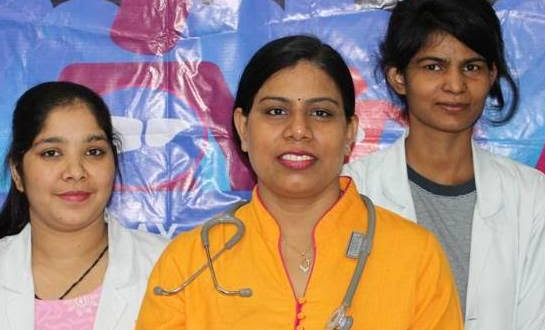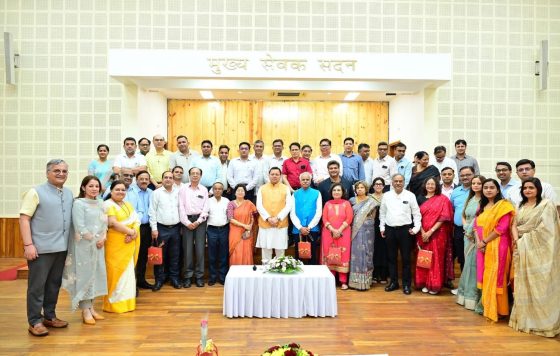DAINIK NATION BUREAU
With an aim to increase awareness and understanding of viral hepatitis as a major global health issue Sanjay maternity centre observed World Hepatitis Day, on July 28. The theme for this year’s World Hepatitis Day is “eliminate hepatitis”.
Dr. Sujata Sanjay, obstetrician and gynecologist, said that the jaundice outbreak was a man-made problem. It could be prevented only by early detection of the source of contamination and monitoring of drinking water on a day-to-day basis. Hepatitis B, C, and D usually occur as a result of parenteral contact with blood or body fluids (i.e. saliva, semen and vaginal fluid) of an infected person.
Hepatitis B is 100 times more infectious than the AIDS virus and it is preventable with an effective vaccine and treatable with medications. India has over 4 Crore hepatitis B (HBV) infected patients which is second only to China and it constitutes about 15 per cent of the entire pool of hepatitis B in the world. As per the World Health Organization’s (WHO) “Global health sector strategy on viral hepatitis 2016-2021,” the final target for hepatitis in the Sustainable Development Agenda 2030 is to eliminate the virus.
Dr. Sujata clarified that it spread from the consumption of faecal-contaminated water caused by sewage flow, open defecation and from contaminated food items and not from a person-to-person contact. The virus was fatal for pregnant women with mortality rate as high as 75 per cent, she warned. There was no vaccine but only symptomatic treatment of hepatitis E and A, she said. The virus remained dormant for six months as it could survive on the organic material in water supply sources
Dr. Sujata told that hepatitis B and C are transmitted through blood and sexual interaction while A and E are water- and food-borne diseases. “The prevalence of the disease is not negligible and everyone should be on alert to protect themselves,” she added.
People in India are still not aware of availability of vaccination services for prevention of Hepatitis B. Every 1 individual out of 3 is infected with the disease and 240 million people are chronically infected globally. This lack of awareness and treatment leads to progressive liver damage and can cause life-threatening conditions such as fibrosis and liver cancer, resulting in an estimated 4.1 lakh deaths in the region every year.
“The most common symptoms of this disease include skin, or the whites of the eyes, turning yellow, fever, fatigue that persists for weeks or months, loss of appetite, nausea, and vomiting. These symptoms should not be ignored,” Untreated hepatitis causes irreversible scarring of liver or cirrhosis. Chronic liver infections with HBV and HCV can also increase risk of liver cancer. she said
The irony is that Hepatitis B has a vaccine, but no cure, while Hepatitis C has no vaccine, but does have a cure. Hepatitis C is also fairly common, with around one per cent of the population harbouring the virus without knowing it. “The World Hepatitis Day is an opportunity to review and reiterate our commitment and resolve to eliminate hepatitis and save lives,” Pratik said.
 Dainik Nation News Portal
Dainik Nation News Portal




